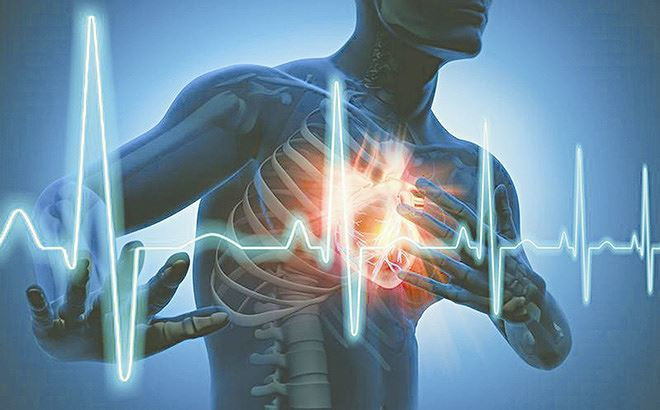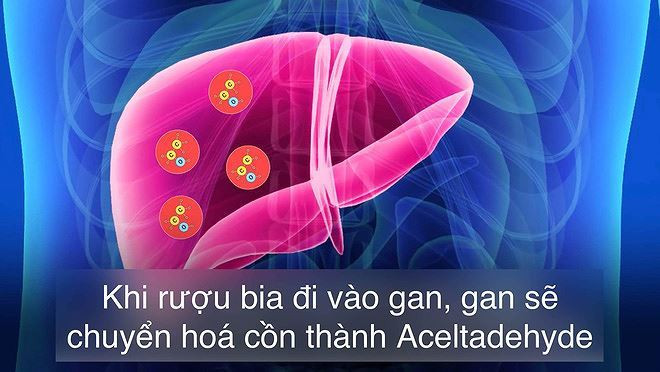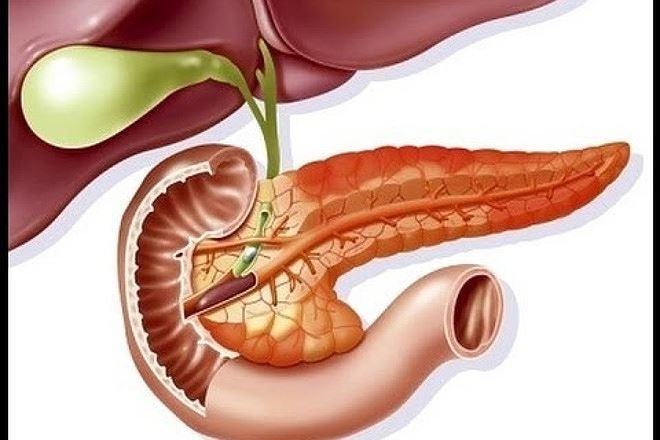5 shocking internal organs that 'evaporate' when drinking alcohol regularly
It is very difficult to give up drinking alcohol, but you can completely limit it if you know that after alcohol enters your body, it will seriously destroy your internal organs.
Some opinions previously said that drinking alcohol in moderation is very good for your health, but drinking too much can cause harmful consequences to the body, even at a serious level that will make you startled.
According to research from the US National Institute on Alcohol Abuse and Alcoholism, blood alcohol levels rise within 10 minutes of the first drink. But people should be more concerned about the long-term effects of alcohol on the human body.
The American Journal of Medicine recently published an article summarizing the damage alcohol can do to five major organs. Read on to learn how to decide how you want to drink.
The harmful effects of alcohol on the 5 most important internal organs:
1. Heart

Over time, drinking too much can cause a gradual weakening of the heart muscle, resulting in irregular blood flow to the body's organs.
That is the real reason why alcoholics often suffer from cardiomyopathy, which can cause the heart muscle to dilate and sag. Patients with cardiomyopathy often have difficulty breathing, irregular heartbeats, fatigue, an enlarged liver, and a persistent cough. Drinking alcohol also increases the risk of heart attack, stroke, and high blood pressure.
2. Brain

Drinking alcohol at the beginning after alcohol enters the body will immediately give the brain a feeling of excitement, but unfortunately, not long after, it has a devastating effect on the brain.
Drinking alcohol slows the transmission of information between neurotransmitters, and the ethanol in alcohol can damage many parts of the brain.
Long-term damage to brain neurotransmitters can lead to changes in the drinker's behavior and mood, specifically anxiety, depression, memory loss, and seizures.
If the alcoholic's nutritional status is poor, cerebral edema will occur and the accompanying symptoms will be more frightening: memory loss, confusion, hallucinations, loss of muscle coordination and inability to form new memories.
3. Liver

The liver plays an important role in digesting food, absorbing nutrients, controlling infections, and removing toxins from the body.
In the United States, 2 million people develop liver disease each year from drinking too much alcohol.
In 2009, cirrhosis ranked as the 12th leading cause of death among Americans, and nearly half of those deaths were linked to alcohol consumption. About one-third of cases in the United States requiring liver transplants are also due to alcohol use.
4. Pancreas

Drinking too much alcohol can disrupt the function of the pancreas, causing it to secrete too many enzymes internally, instead of transporting enzymes into the small intestine.
The buildup of enzymes in the pancreas eventually leads to inflammation, a condition known as pancreatitis. Pancreatitis can come on quickly as an acute attack. Symptoms include abdominal pain, nausea, vomiting, increased heart rate, diarrhea, and fever.
However, it can also be a chronic attack of the pancreas, leading to slow pancreatic function, diabetes, and even death.
5. Kidney

The harmful effects of alcohol on the liver will also extend to the kidneys.
Because alcohol has a diuretic effect, it makes the kidneys unable to perform their function of regulating the flow of body fluids normally, leading to a disruption in the distribution of sodium, potassium and chloride ions, causing electrolyte imbalance.
Drinking too much alcohol can also lead to high blood pressure, which is the second leading cause of kidney failure.
After these terrible effects on your health, you should consider carefully before raising your glass of wine. No matter how much fun the party is, you should stop as soon as possible.


